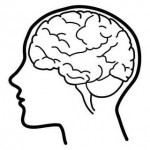 Research: A study by Jean Twenge in Clinical Psychology Review uncovered a dramatic shift in the indices of anxiety and depression among young people in the last half century, with an 80% increase from 1960 to 2002. Her theory behind it lies less to do with the state of the world, the economy, or other extenuating circumstances, and more to do with how children are taught to value their own worth. Twenge notes that anxiety and depression correlate with a sense of lacking control over one’s life or destiny, and is consistent with a societal shift from intrinsic goals (personal development or well-being) to extrinsic (primarily materialistic) goals. In schools this presents as a shift from a focus on developing independence and personal abilities to a focus on grades and testing, and adult-driven decisions about how children spend their days.
Research: A study by Jean Twenge in Clinical Psychology Review uncovered a dramatic shift in the indices of anxiety and depression among young people in the last half century, with an 80% increase from 1960 to 2002. Her theory behind it lies less to do with the state of the world, the economy, or other extenuating circumstances, and more to do with how children are taught to value their own worth. Twenge notes that anxiety and depression correlate with a sense of lacking control over one’s life or destiny, and is consistent with a societal shift from intrinsic goals (personal development or well-being) to extrinsic (primarily materialistic) goals. In schools this presents as a shift from a focus on developing independence and personal abilities to a focus on grades and testing, and adult-driven decisions about how children spend their days.
Increase in Anxiety
Practice: In an internal study conducted this fall, we found that 33% of Chrysalis students reported experiencing anxiety to some degree–from a general feeling of nervousness around particular situations to anxiety disorders. Our role in these students’ lives is to ease the pressures associated with traditional schooling: re-thinking the school day in terms of scheduling, allowing them to participate in individual or small group classes, reinventing social expectations, letting them to work at their own pace and ability level, providing flexibility in their coursework, giving them choices in how they pursue their education, and reinforcing the value of their personal interests. Our goals vary for each student depending on their particular circumstance.
